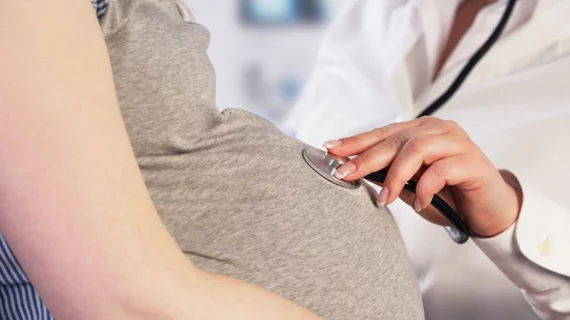Radiologists propose resolution to protect specialty from prosecution in states that ban abortion
Radiologists are supporting a resolution advocating for the protection of medical imaging professionals who provide reproductive-related services in states that have imposed restrictions around abortion.
Thirteen members of the specialty in Tennessee—one of 13 states with bans triggered when the Supreme Court overturned Roe v. Wade—voiced their concerns in an April 27 editorial. They note that little attention has been paid to radiologists’ important role in diagnosing, treating and intervening on pregnant patients.
Obstetrical imaging and interventional radiology specialists in these states are being forced to strike a balance between providing quality care while avoiding criminalization.
“As of this writing and to our knowledge, no radiologists have been charged with a felony for their involvement in abortion cases, but neither have any obstetricians,” Katherine Frederick-Dyer, MD, with Vanderbilt University Medical Center in Nashville, and co-authors wrote in JACR [1]. “Nevertheless, the ambiguous, high-stakes nature of these bans produces a chilling effect, which significantly impedes a physician’s ability to practice evidence-based medical care.”
Radiologists have submitted the resolution to the American College of Radiology for consideration at its annual meeting, running May 6-10 in Washington, D.C. It asks ACR to oppose policies that interfere in the provider-patient relationship or that would criminalize radiologists and other imaging professionals for providing abortion-related care. The proposal has drawn support from 25 state radiological societies, including Tennessee and five others with trigger bans: Arkansas, Idaho, Kentucky, Louisiana and Utah. The Council of Affiliated Regional Radiation Oncology Societies, among others, has also voiced its support.
Frederick-Dyer and colleagues said the document is fashioned after a June 2022 ACR statement, labeling the physician-patient relationship as “sacred” and arguing that it “must not be jeopardized” by nonmedical outside interference. It’s also inspired by a resolution from the South Carolina Medical Association, which specifically discusses radiologists and other imaging experts, using language from ACR’s strategic plan.
“The resolution asks that the society oppose any government regulation or legislative action that would criminalize radiologists, radiation oncologists, physicists and other medical imaging professionals for providing evidence-based medical care to pregnant patients within the scope of their training, professional judgment and nationally recognized professional practice guidelines,” Frederick-Dyer and co-authors said of the new proposal.
Radiologists such as Geraldine McGinty, MD, MBA, have taken to social media ahead of the ACR meeting to promote the resolution.
“We feel very much that this is in radiology’s lane,” McGinty, who is senior associate dean for clinical affairs at Weill Cornell Medicine in New York, told Radiology Business. “Resolutions are not published outside of the ACR in terms of who the co-sponsors are,” she added later. “But I will say that we feel like it’s something that a lot of people agree with, but obviously the final decision will be made by the ACR council.”

